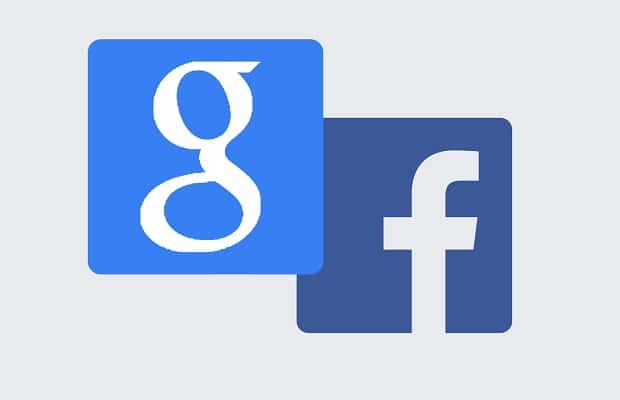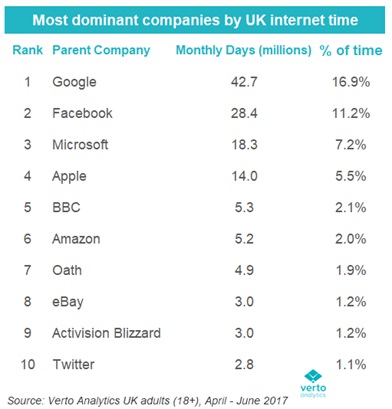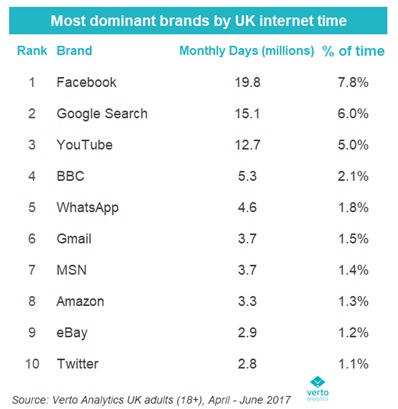
The study, from measurement firm Verto Analytics, British adults accumulate 42.7 million days a month across Google properties – primarily search, YouTube and Gmail – the equivalent of more than 1 in every 6 minutes (17%) of UK internet time. Around 11% of time (28.4 million days) is spent on Facebook-owned properties which include WhatsApp and Instagram.
“Google and Facebook’s share of internet time and ad revenue is staggering considering the internet’s near-infinite long tail,” said Hannu Verkasalo, CEO of Verto Analytics. “Estimates say they account for 50-75% of ad revenue but are hoovering up 80-99% of every new pound spent. Thus, their share of revenue is double their share of time. That’s because they’ve been highly innovative and make it much easier for advertisers to spend with them, such as providing both measurement tools and economies of scale. In contrast, the likes of the newspaper industry, who rejected a joint ad sales venture to combat declining revenues, aren’t offering advertisers the same path of least resistance and effectiveness.”

The newly combined Yahoo and AOL offering – Oath – now accrues the seventh most internet time in the UK, 4.9 million days a month (1.9% of time).
The 10 most dominant companies in the UK – all of which are US firms, except for the BBC – account for half of internet time, which Verkasalo says “leaves the other hundreds of thousands competing for the other half.” Alongside the BBC, Sky is the only other UK company featured in the 20 most-heavily used sites in the UK.

“The implications of a handful of dominant companies – particularly just two – go beyond simply which sites we surf. You have fewer sites increasingly controlling not only what you see and hear but where advertising revenue goes,” explains Verkasalo. “The erosion of newspapers, magazines and high street retailers plus the web giants sway over political elections is just the beginning.
“Advertising funds companies and ends up having a big impact on what products and technologies get developed. In tandem, increasing power and wealth going into fewer hands means it’s easier to move into other business models and industries, influencing society in new ways – think Google’s move into driverless cars and Facebook’s dive into Artificial Intelligence. It used to be the likes of NASA that drove the future, now it’s down to what search engine and social network you use.”
Source: http://www.vertoanalytics.com
